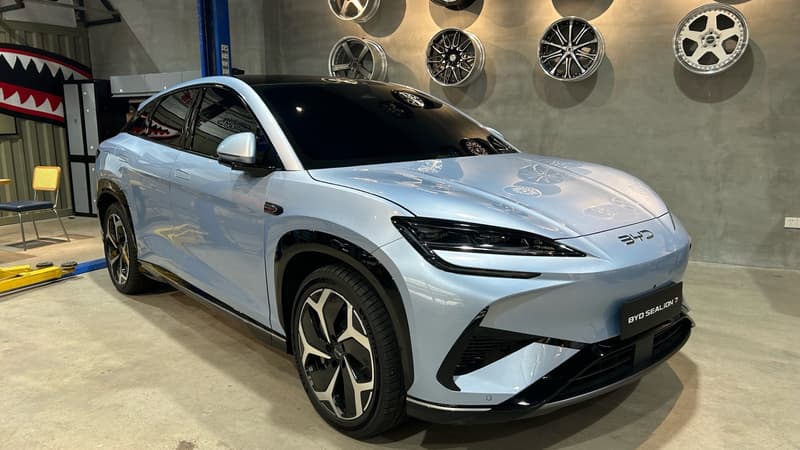BYD wants to overtake Tesla in Europe by 2030 in the electric car market, especially in basic models, the Chinese manufacturer’s European director said on Thursday. “We are confident that we can become a leader” by the end of this decade in Europe, said Michael Shu during the Financial Times (FT) annual conference on the future of the automobile.
After starting out as a battery maker, BYD (“Build Your Dreams”) overtook Tesla in the fourth quarter of 2023 to become the world’s largest seller of electric vehicles. But Elon Musk’s group claims to have regained this title in the first quarter of this year.
BYD launches in Hungary in 2025
BYD’s first European car factory will begin in 2025 in Hungary, where it already manufactures buses. The country has become an important base for Chinese industry, a cooperation that was celebrated Thursday with the arrival of President Xi Jinping for a nearly three-day visit, following a visit to France. BYD is preparing to “make a strong investment in the European Union”, which could represent “several billion euros”, in factories, distribution networks and marketing, Shu announced on the London stage of the FT.
In particular, BYD will have to decide in the coming months whether to build a second car factory in Europe.
“Welcome to France”
French Economy Minister Bruno Le Maire said on Monday that BYD and the Chinese auto industry are “welcome in France.” The manufacturer is just beginning its offensive in Europe, with mid-range vehicles at competitive prices. BYD could, however, position itself quite quickly in the electric entry range with its small Seagull (seagull, in English), with a price of about 20,000 euros, and compete with the Citroën C3 and the future small electric Renault or Volkswagen. The new factory in Szeged (south) will manufacture electric cars “in Europe and for Europe,” Shu stressed. If BYD is in the process of shipping thousands of cars on its own cargo ships, “exporting cars from China to Europe is not viable in the long term,” commented the manager.
Szeged should also manufacture plug-in hybrid models (with a thermal engine and a large electric battery), because Europe has lagged behind in installing charging stations, according to Shu.
Source: BFM TV


